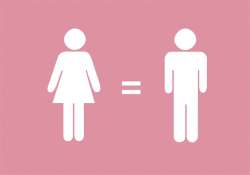Gender pay gap? Most people think men, women paid equally
Amid raging debate over gender pay gap globally, a survey by US-based career resource website Glassdoor has revealed that over 70 per cent of adults in 7 developed countries believe men and women are paid

Amid raging debate over gender pay gap globally, a survey by US-based career resource website Glassdoor has revealed that over 70 per cent of adults in 7 developed countries believe men and women are paid equally.
According to the survey, 7 in 10 employed adults in seven countries -- United States, Canada, United Kingdom, France, Germany, The Netherlands and Switzerland -- believe men and women are paid equally for equal work at their employer.
Women feel the pinch more than their male counterparts: 70 per cent of women believe there is equal pay for equal work at their employer compared with 77 per cent of men.
Meanwhile, a recent World Economic Forum's Global Gender Gap Report has said that it will take over 80 years to reach gender parity in the workplace.
Glassdoor survey noted that salary inequality between men and women is still a major issue and topic of conversation globally, however, employee sentiments and perceptions may not match reality.
An overwhelming majority of employed adults (89 per cent) believe that men and women should be paid equally. Moreover, Americans (93 per cent) are most in agreement that men and women should be compensated equally.
To a question whether they would apply for work at a firm where a pay gap existed, three out of five employees said they would not.
Women are less likely than men to apply for a job where they believe there is a gender pay gap, and in the US, UK, and Canada, younger adults are less likely to apply to work if there is a difference in how men and women are compensated for equal work.
According to the survey, companies hoping to attract the best talent would be wise to be transparent about their compensation practices.
As per the latest global gender gap index by the World Economic Forum, India improved its ranking to 108th position among 145 countries. Iceland was once again on top followed by Norway and Finland.